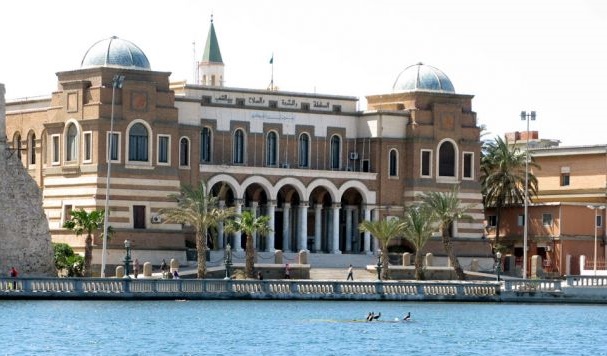Libyan Dinar black market rate plummets as salary fraud details emerge
Published on Friday 3 November 2017 Back to articles
In recent years, Libya’s local currency black market has thrived because of increasingly limited foreign exchange reserves, strict currency controls, and lack of public confidence in the Libyan Dinar (LD) value.
The ongoing conflict significantly contributes to this phenomenon. The Libyans’ growing demand for foreign currency, to hedge the value of their cash holdings, has increased the premium placed on the official exchange rate. The uncontrolled flooding of the market with new Dinars — commissioned by the two rival central bank branches in Tripoli and Bayda — has contributed to the deterioration of the unofficial exchange rate.
The current official exchange rate is LD1.37 to the US$ but the black market rate fell to a record low of LD8.75 to the US$ on 26 October. There are some individuals who benefit from this crisis. Prominent Libyan businessmen and politicians have lobbied for the central bank for months to devalue the Dinar to eliminate this arbitrage opportunity, but the central bank has not enacted this policy because of the consequences that it would have for the Dinar value of Libyan assets.
Criminals withdraw externally held US$ on Libyan credit cards at the official rate and then sell the dollars on the black market for a hefty profit. Other individuals obtain government Letters of Credit (LC) to import goods into the country. They procure fewer goods than the amount stipulated in the LC, or no goods at all, leaving them with extra cash that they stash with overseas partners or shell companies. Finally, if goods associated with the LCs are actually imported, the individuals bribe customs officials to lie and state that the amount of goods entering the country matches the amount agreed to in the original LC.
Solutions to these corrupt schemes (that take advantage of the currency crisis) adopted by the current central bank governor, Sadiq el-Kabir, have arguably exacerbated the Dinar crisis. He has limited the number of LCs that the central bank will release which has forced businesses to depend on the more expensive black market for their procurement needs. The added costs associated with this decision are then passed to the customers.
In the context of Libya’s lack of the rule of law, individuals are able to take advantage of currency market’s arbitrage opportunities, as well as the government’s inability to combat ghost workers.
After rolling out the national identification system in 2015, the public sector salary budget was reduced by several billion dinars. The education ministry alone was about to cut 70,000 salary payments that it found were going to ghost workers. By this month, according to the ministry of finance, the system had eliminated about 100,000 cases of individuals receiving more than one salary. The annual cost of public sector salaries had also fallen by over LD7 billion (US$5.1billion).
The implementation of the national ID system has not, however, been without its challenges with individuals continuing to claim salaries without having national ID numbers. Software engineers working on the national ID system have also been targeted for kidnappings and intimidation in order to prevent the transparent implementation of the system. It has been particularly hard to implement in southern Libya which has made it difficult for southerners to get their public sector salaries legitimately.
This article was taken from our weekly analytical paper Libya Politics & Security. If you wish to discuss this topic with our consultants, or are in need of advice in regards to Libya, then please contact us.



